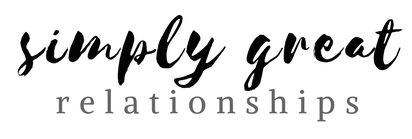Typically, when our opinions differ from those of a friend or family member, we can choose to avoid talking about that topic or come to compromise. Things like politics or what to order for dinner are fairly simple to manage with loved ones.
But, what about COVID-19 precautions?
You don’t need to talk about them, but you do need to embody the ones that are important to you. As you, your family, and friends enact new practices, you’ll quickly discover the areas of disagreement.
What happens when you’re together, but abiding by differing practices?
It’s time for a refresh on boundaries.
There are a few ways to navigate situations where you’ll be with friends or family members who practice different precautions in the coming months.
1 | Get clear on what practices are important to you and your partner.
2 | Communicate these boundaries ahead of time to the friends or family you’ll be with.
3 | Be prepared to enforce your boundaries as needed.
In this week’s episode, we’re covering these three steps in more detail, as well as the unique challenges you may face when friends or family members have differing views on precautions, so you can be prepared for re-opening.
Listen:
Watch:
Disclaimer:
Silveron Productions LLC and Nassau Wellness Marriage and Family Therapy PLLC do not hold itself out to be your psychologist, psychiatrist, psychotherapist, or social worker. Our content is provided for informational and educational purposes only and is not to be perceived or relied upon as medical or mental health advice, diagnosis or treatment. Do not use our content in lieu of professional advice given by qualified medical and mental health care professionals and do not disregard professional medical or mental health care advice or delay seeking professional advice because of information you have received from us. Always seek the advice of your physician or other qualified mental health provider with any questions you may have regarding a medical condition or mental disorder. If you think you may have a medical or mental health emergency, call your professional caregiver or 911 immediately. We do not recommend or endorse any specific tests, physicians, psychologists, psychiatrists, psychotherapists, social workers, products, procedures, opinions, or other information that may be mentioned in our content. By viewing our content, you acknowledge and agree that the following warnings and disclaimers apply to all of our content and agree to indemnify and hold Nassau Wellness and all content participants for any and all losses, injuries, and damages resulting from any and all claims that may arise from your use or misuse of the content.
By viewing our content, you further acknowledge that you are doing so voluntarily and at your own risk, and that you are solely and personally responsible for your choices, actions, and results, now and in the future. You accept full responsibility for the consequences of your use or non-use of any information provided in our content. Nassau Wellness is not liable for any advice or information provided in our content, all of which is provided on an “as-is” basis. No warranties, either express or implied, are made regarding the information we provide, and Nassau Wellness makes no representations about the accuracy or the suitability of our content. Opinions and other statements expressed by third-parties are theirs alone.


